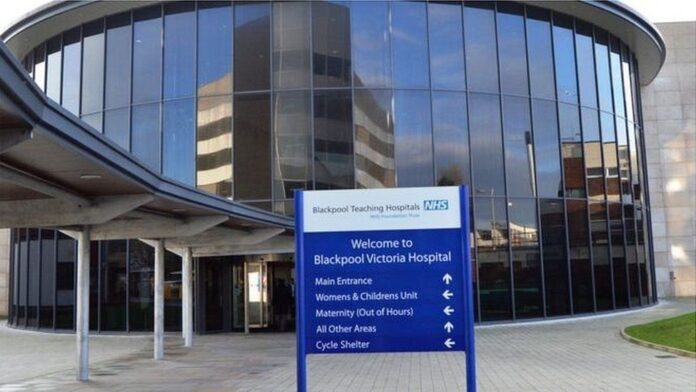The number of times people were hospitalised due to heart failure rose significantly during the second wave of the Covid-19 pandemic, according to research funded by the British Heart Foundation (BHF) and presented at the British Cardiovascular Society Conference in Manchester.
Doctors at Blackpool Teaching Hospitals NHS Foundation Trust monitored the number of consecutive episodes of heart failure for people admitted to Blackpool Victoria hospital in the six months before Covid-19 struck the UK, and over the following 12 months.
They found that the number of times people were admitted to hospital with heart failure increased from 341 episodes in the six months prior to Covid-19 (August 2019 to January 2020) to 415 episodes in the second wave of the pandemic (August 2020 to January 2021) – a 22 per cent increase.
The number of heart failure patients who died in Blackpool Victoria hospital also increased in the second wave of the pandemic, an increase of 50 per cent. A total of 64 patients died (15 per cent) in the second wave, compared to 35 patients (10 per cent) before Covid-19. The proportion of hospital deaths during the first wave (February 2020 – July 2020) did not change and remained at 10 per cent.
Although this data reflects heart failure episodes in one hospital in England, it highlights a concerning trend that could be seen in other hospitals across the UK.
When the pandemic hit, emergency departments across England saw the number of people going to hospital with a suspected heart attack halve. This was predominately due to fears of being exposed to Covid-19 in hospital or overburdening the NHS. This slash in heart attack admissions raised huge concerns that thousands of people would be at greater risk of suffering long term heart damage, needing intensive care, or even dying as a result.
Dr Kenneth Wong now fears that delays in going to hospital during the early stages of the pandemic for a heart attack, or worsening heart symptoms, has led to people suffering or dying unnecessarily from heart failure.
Dr Kenneth Wong, lead researcher and Consultant Cardiologist at Lancashire Cardiac Centre at Blackpool Teaching Hospitals NHS Foundation Trust, said:
“It has been devastating to see so many more people come through our hospital doors with heart failure in the second wave of the pandemic. Many people feared to seek immediate emergency care for heart attacks at the start of the pandemic, and we suspect this could be a major driving factor in the rise of heart failure hospitalisations and deaths.
“Regardless of whether there is a pandemic or not, it’s absolutely critical that people receive quick treatment for a possible heart attack. If you do have symptoms of a heart attack or severe breathlessness, call 999 immediately. If your heart condition such as heart failure worsens, it’s important to speak to your GP, heart failure nurse or cardiologist straight away for support on next steps to get the best care.”
Professor Sir Nilesh Samani, Medical Director at the British Heart Foundation, said:
“Although we don’t know if this is a nation-wide trend, this data from Blackpool highlights the collateral damage from the pandemic and paints a concerning picture that could be experienced in other hospitals across the UK.
“The pandemic has also put cardiac services under momentous strain, with more than 300,000 people in England now waiting for vital heart treatment. Heart patients cannot afford to wait for treatment. We need a comprehensive plan to address the increasing burden of cardiovascular care otherwise more people will suffer lasting heart damage, or even premature death, all of which could be avoided.”







